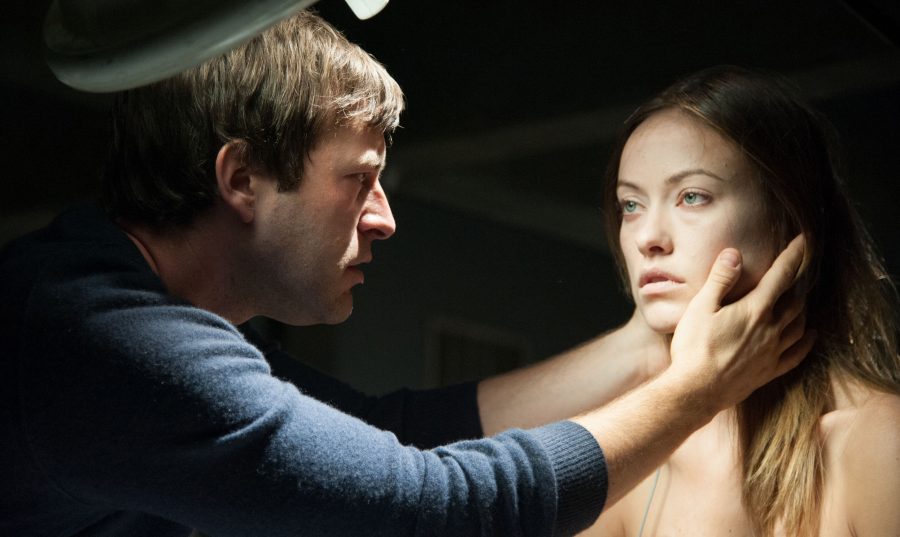
Frank (Duplass) consoles the newly resurrected Zoe (Wilde)
Devin King | Staff Reporter
Published February 27, 2015; 2:05 p.m
In “The Lazarus Effect,” it is said that Hell is reliving your worst experiences over and over again. If this is true, then my personal Hell would be watching said movie on constant repeat.
Olivia Wilde and Mark Duplass play engaged scientists who develop a serum which they hope they can use to bring people back from the dead. With the help of their young assistants (“American Horror Story’s” Evan Peters and comedian/musician Donald Glover) and a film student documenting their work (Sarah Bolger, arguably the best of the cast), they test their serum on animals and end up successfully resurrecting a dog. When Wilde’s character, Zoe, dies from an illogically depicted electrocution accident, her fiancé decides to use the serum on her. When Zoe is brought back, the rest of the cast begin to realize that, for no apparent reason, she is not acting “herself,” at which point the film becomes a laughably unoriginal and harmless possession film disguised as a sci-fi thriller.
Like an ironic, monstrous creation out of a horror film, “The Lazarus Effect” is a hideous and confused creature. The movie’s plot line and is too incomprehensible to grasp what is happening. The jumbled, messy cinematography gives the film a sense of self-parody. Its cheesy attempts at invoking horror are laughable at best, and headache-inducing at its worst, with jump scares and embarrassing misuse of a “creepy” atmosphere. At the screening I attended, during the biggest scares, not a scream could be heard over the audience’s laughter.
Any thought-provoking ideas or creative concepts are buried in clichéd attempts of classic horror throwbacks, such as multiple unnecessary nods to “The Shining.” The movie is a mash up themes regarding religion, science, physiology and the supernatural, which constantly fight for attention leaving the film seemingly indecisive of what it wants to be. While the cast is not horrible, none of them can help ease the delivery of the painful dialogue. In addition to all its faults, the movie’s low production value is made obvious, considering there are only two set pieces throughout the entire 83-minute run time, including multiple reused scenes.
There is no excuse that is remotely close to justifying a viewing of the film. It is advised to treat “The Lazarus Effect” like a horror movie villain and avoid it at all costs.














